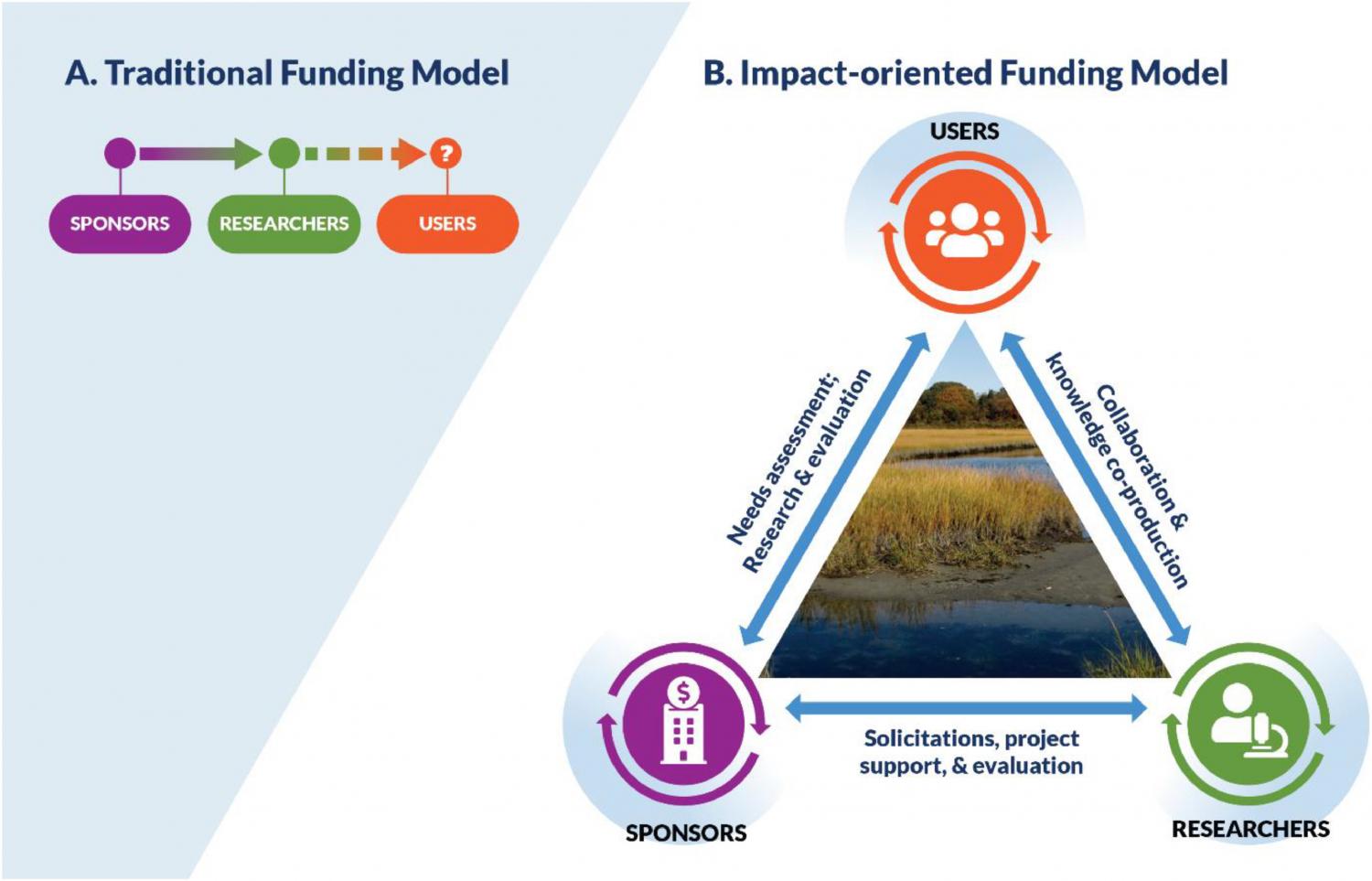
Elsevier, Global Environmental Change, Volume 60, January 2020
There is widespread belief that meaningful interaction between scientists and practitioners, or co-production, increases use of scientific knowledge about sustainability and environmental change. Although funders are increasingly encouraging co-production, there have been few empirical studies assessing the outcomes of these efforts in shaping knowledge use. In this study, we systematically analyze research project reports (n = 120) and interview project participants (n = 40) funded by the U.S. National Estuarine Research Reserve System from 1998 to 2014 to support coastal management. Our analysis shows that escalating funding requirements for collaboration with users change research practice and strengthen connections between research outcomes and knowledge use. In consequence, a new model for science funding emerges, where sponsor, researcher, and user are more interactive with one another.
